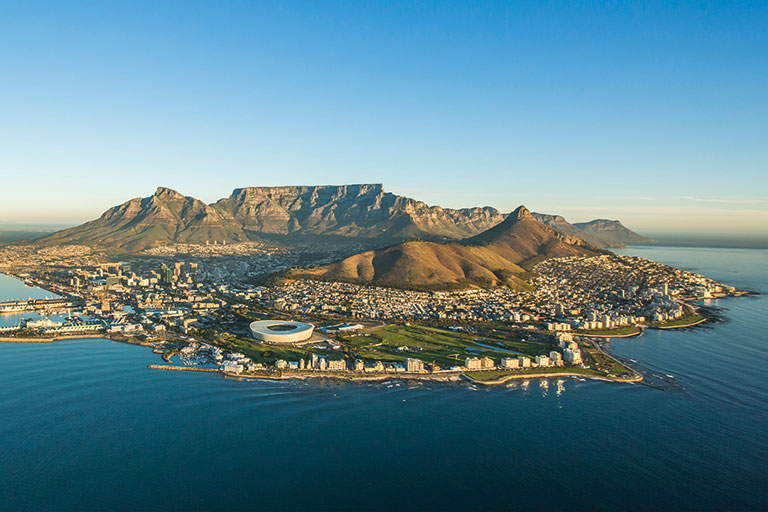
Ramaphosa must take on the cosy world of “pampered industries” protected from genuine competition, “cushy labour laws” that help cause a 29% unemployment rate and public servants who “do little but… embezzle”. Yet his consensus-first approach suggests that he prefers to give in to vested interests rather than taking them on.
GDP in Africa’s most industrialised country fell for the second time this year in the third quarter, prompting renewed talk of impending recession, says Roxanne Henderson on Bloomberg.
Indeed, South Africa risks losing its status as an investment destination altogether, says James Formby of Rand Merchant Bank in Johannesburg’s Business Day. The solutions are clear: greater fiscal discipline, a clampdown on corruption, easing labour laws and reforming the power grid. Politicians must realise that “it’s no longer five to midnight, it is midnight”.
Moody’s is the last credit-rating agency to grade South African sovereign debt above junk status, notes David Pilling in the Financial Times. A downgrade, and higher interest payments, would only worsen a shaky fiscal position, with public debt moving towards 70% of GDP. Energy monopoly Eskom’s “clapped-out” power stations and creaking grid cannot ensure reliable power.
The firm’s $30bn debt is worth 9% of the country’s entire GDP, while 55% of its money is spent on “bloated coal contracts” negotiated by government cronies. Ramaphosa is “loath to take on the vested interests” that helped him gain the presidency, but if he doesn’t “Eskom will drag the country down with it”.
The eternal reform story
The gloom is weighing on the stockmarket. The country’s FTSE/JSE Top 40 benchmark is up 11.5% so far this year, about half the global average equity performance. On a price/earnings ratio of 13.3 the market appears to offer value. But we have been here before.
South Africa is a “reform story endlessly sketched out but never written”, says Buttonwood in The Economist. Years of commissions into how to unleash growth have yielded little real reform. The country still enjoys a certain “residual appeal”.
Key institutions such as the central bank and treasury are well run. Ironically, the nation’s well-run companies operate in such oligopolistic conditions that they are often immune to broader economic trouble. Yet investors often choose to be “tactical” – buying in for short periods when they think markets have got carried away. In the long term, “few are valiant enough to be outright bullish”.